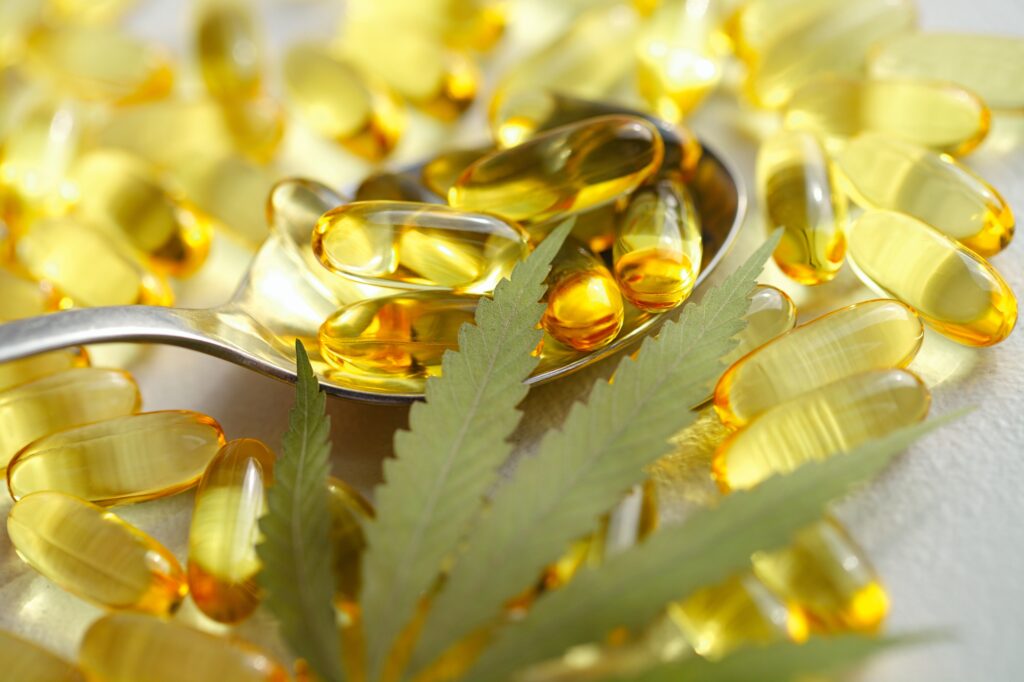Although there are concerns regarding the ethics and developmental impact of cannabis use in children, there are special cases in which a child may be advised to use cannabis by their doctor.

These cases have been observed among children with conditions that severely impact their quality of life. As a parent, you may find yourself at a crossroads, especially if your child is particularly young.
State medical cannabis programs have protocols in place for minors who have been advised to use cannabis. For example, a patient under 18 or 21 years old (depending on the state) may need a parent to serve as their caregiver so they can legally enter and purchase products from dispensaries.
The qualifying conditions for a minor to receive a medical marijuana card vary from state to state. They may vary based on their age, as well. But what happens if the child is of school age? Are school nurses permitted to administer medical marijuana to pediatric cannabis patients? What sort of stigma or ethical barriers do parents of these patients face?
Why Parents Decide to Give Their Children Medical Cannabis
Parents certainly don’t just wake up one day and decide they want to smoke up with their kids. The decision to pursue medical cannabis for their child often comes after watching them struggle for a long time with a life-long or potentially fatal illness.
While it may be the parent or the pediatrician’s idea, medical cannabis typically isn’t their first treatment plan. Doctors and parents decide together whether medical marijuana could potentially help the child after enduring the frustration of other traditional treatment options providing no relief.
As seen in the VICE docuseries Weediquette (which is currently available for streaming on Hulu), parents of children with cancer decided to use cannabis to help alleviate their child’s symptoms and improve their overall quality of life.
It’s not an easy choice, but parents will do anything to help their child feel better when left with other options.
There’s also the famous case of Charlotte Figi, a child diagnosed with a rare form of epilepsy (Dravet syndrome) that caused her to have over 300 seizures per week. After trying many different antiseizure medications, the family was told by doctors there was “nothing left to try.”
With their backs against the wall, the family began to look into CBD products, which helped reduce Charlotte’s seizures to just one per month.
Unfortunately, Charlotte passed away in 2020 due to COVID-19 complications. However, her story helped begin a major push in advocacy for using CBD to reduce seizures. And in 2018, the FDA approved Epidiolex, a CBD-based medication for Dravet Syndrome and epilepsy.
Childhood Cannabis Use: Stigma and Ethical Concerns
Parents whose children use medical cannabis may face external stigma or worry about the ethics surrounding a minor using medical marijuana.
Adults who are medical cannabis patients already report feeling stigma, so it’s natural for a patient’s parent to worry about how their child’s medical cannabis is perceived.
For example, parents may worry about how their child’s medical treatment plan is perceived by other parents at school, teachers, nurses, and family members. Parents may also worry about how ethical it is to give a child THC, knowing that euphoria or “getting high” is a side effect of it.
But at the end of the day, the decision to pursue medical cannabis for your child was made with your best intentions and the best intentions from your child’s health care provider. If your child is suffering from a severe medical condition, it’s nobody else’s business what medication provides them with relief.
As for the ethical concerns, it’s a difficult personal battle. But if you’re noticing significant improvements in your child’s quality of life, that takes priority and precedence over everything else.
Caregivers, School Nurses, and More: Caring For Pediatric Cannabis Patients

In states with medical marijuana programs, minors are not allowed to purchase cannabis at dispensaries by themselves. A caregiver must be present with them at all times.
Read More: Cannabis & Caregivers: How to Help Your Patients and Loved Ones
By definition, a caregiver is an individual certified by the state to purchase and administer cannabis products to a medical cannabis patient. A caregiver is not legally permitted to use any cannabis products purchased on behalf of the patient they’re caring for.
As a parent and a caregiver, it’s your responsibility to keep a close eye on your child and monitor how cannabis affects their symptoms/conditions. This also entails communicating with your child’s health care team about what doses to start with and any positive or negative reactions your child has to medical cannabis.
When it comes to school, the laws on whether nurses can administer cannabis to students vary.
For example, Pennsylvania is a medical-use-only state that allows minors with severe health conditions to apply for medical marijuana cards. In PA, the parent, legal guardian, or caregiver must administer the child’s medicine at the school “without causing a disturbance.”
The parent must also “promptly remove any medical marijuana and related materials from the school premises after the administration of medical marijuana is complete.”
By contrast, Colorado passed a bill in 2018 that allows school nurses to store and administer medical cannabis to students. However, it must be in a non-smokeable form — for example, in a tincture or a capsule.
If your child is of school age, be sure to verify the laws in your state regarding pediatric cannabis use in school. You should also verify whether the school nurse is permitted to administer it on your behalf.
Studies on Pediatric Cannabis Use
A few studies have been published on pediatric cannabis use for epilepsy and other conditions. However, these studies may be limited due to federal laws and ethical compliance guidelines researchers must follow. Thus, a lot of the data collected is self-reported by caregivers or doctors.
More recently, the clinical trials on “pediatric cannabis use” have also been limited to just CBD, likely due to the same legal and ethical compliance concerns.
However, despite any positive results that may be reported in these studies, one primary concern remains for both experts and parents alike: the potential effects of cannabis use on brain development.
Risks of Childhood Cannabis Use: Brain Developmental & Cognitive Effects
When do you think the human brain finishes developing? 16? 17? 18? Shoot, maybe 20 or 21?
Well, it may surprise you to find out your brain hasn’t finished developing until you’re 25-years-old. The prefrontal cortex is the last brain area to finish developing. This area is the part of your brain responsible for decision-making, impulse control, attention, and more.
By that logic, any long-term substance use — be it cannabis, alcohol, or anything else — can negatively impact your cognitive development if you’re under 25 years old.
Thus, the concerns surrounding pediatric cannabis use and neuro-development are particularly high since their brain is nowhere near fully mature.
While the exact effects of cannabis on neuro-development have not been pinned down to a science yet, many experts say cannabis use in childhood or adolescence is associated with adverse effects on motivation, addiction, and cognitive decline.
Other studies say early cannabis use is associated with lower IQ and executive functioning. It has also been associated with declines in neural connectivity in adolescents with cannabis-use disorder.
Neuro-imaging data has shown that teens who use cannabis have structural and functional brain differences from their peers who abstain from cannabis.
However, it’s worth noting the data available on the effects of cannabis on adolescent brains isn’t necessarily being collected from pediatric medical patients who are taking dispensary-bought products in a controlled setting.
Moreover, these studies are conducted on the general population. While they may include pediatric cannabis patients, more often than not, these studies are focused on recreational cannabis use in minors.
When gathering this data, it’s also hard to separate teens experimenting with cannabis from teens who may also drink underage or use other substances recreationally.
Even if the participants are screened on their previous substance use history, some participants may not feel comfortable admitting they have drank, smoked cigarettes, or experimented with other substances as a teenager.
While this doesn’t necessarily invalidate the data yielded by these studies, there is a crucial need for more neuro-imaging and cognitive-behavioral tests on pediatric patients who are solely using medicinal cannabis. This would give parents and doctors a more concrete picture of the potential risks associated with cannabis use and brain development.
If you are concerned about the potential impact cannabis use may have on your child’s developing brain, talk to your doctor. Together, you can decide whether the potential adverse effects outweigh the potential medical benefits your child might have from using cannabis.
Key Takeaways: Being a Caregiver is No Easy Task
Young patients with severe health conditions are sometimes advised by their doctors to take medical cannabis when all other traditional treatment options have failed them.
Making the decision to pursue medical cannabis for your child is incredibly difficult as a parent. Not only may you fear the social stigma or mull over the ethical concerns, there are also legitimate worries about the negative impact cannabis may have on brain development.
Although the adverse effects of cannabis on neuro-development have been well-documented, the overwhelming majority of these studies and surveys are conducted on the general teenage population. Thus, it’s hard to control for other variables that could also impact the results of these studies.
Nevertheless, they are real concerns you’ll have to face as a parent and caregiver. As always, talk to your doctor to make the best decisions for your child’s treatment plan.
References
- VICE. (2016). Weediquette – VICE TV. Viceland. https://www.vicetv.com/en_us/show/weediquette-id
- Garcia, S. E. (2020, April 10). Charlotte Figi, Who Helped Popularize CBD for Medical Use, Dies at 13. The New York Times. https://www.nytimes.com/2020/04/09/us/charlotte-figi-dead.html
- Hulaihel, A., Gliksberg, O., Feingold, D., Brill, S., Amit, B. H., Lev-ran, S., & Sznitman, S. R. (2022). Medical cannabis and stigma: A qualitative study with patients living with chronic pain. Journal of Clinical Nursing. https://doi.org/10.1111/jocn.16340
- Pennsylvania Department of Health. (n.d.). School. https://www.health.pa.gov/topics/programs/Medical%20Marijuana/Pages/School.aspx
- Colorado General Assembly. (2018). School Nurse Give Medical Marijuana At School. https://leg.colorado.gov/bills/hb18-1286
- Cox, T. (2011, October 11). Brain Maturity Extends Well Beyond Teen Years. NPR. https://choice.npr.org/index.html?origin=https://www.npr.org/templates/story/story.php?storyId=141164708
- Aran, A., & Cayam-Rand, D. (2020). Medical Cannabis in Children. Rambam Maimonides Medical Journal, 11(1), e0003. https://doi.org/10.5041/rmmj.10386
- Dharmapuri, S., Miller, K., & Klein, J. D. (2020). Marijuana and the Pediatric Population. Pediatrics, 146(2). https://doi.org/10.1542/peds.2019-2629
- Jacobus, J., Courtney, K. E., Hodgdon, E. A., & Baca, R. (2019). Cannabis and the developing brain: What does the evidence say? Birth Defects Research, 111(17), 1302–1307. https://doi.org/10.1002/bdr2.1572